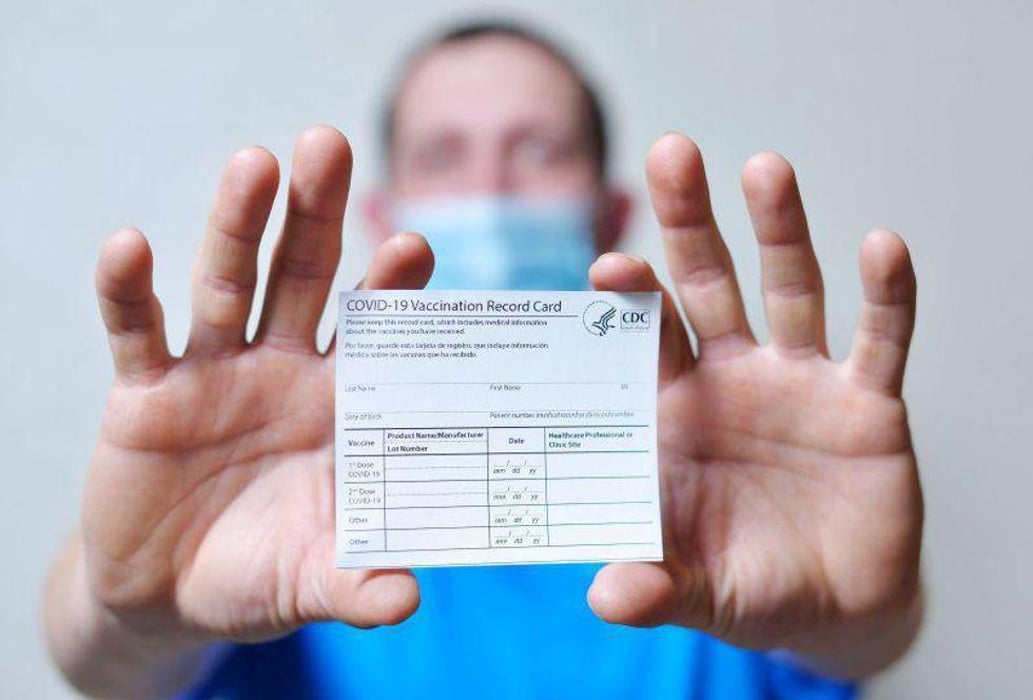State Lotteries Didn’t Help Boost Vaccination Rates

FRIDAY, Oct. 15, 2021 (HealthDay News) -- A shot at winning $1 million did nothing to budge the number of people who got the COVID-19 jab.
According to a new study, lotteries in 19 states designed to encourage people to get vaccinated for COVID-19 did not alter the rate of those who got the shot. In fact, vaccination rates were the same in lottery and non-lottery states.
"It's possible that the group that you're trying to convince to get vaccinated is not convinced that they want the vaccine at all," said researcher Andrew Friedson, an associate professor of economics at the University of Colorado in Denver.
"Maybe they've been subject to some incorrect information with regard to the dangers of vaccines or with regard to the benefits of vaccines, and then unless you're able to adjust their beliefs, no incentive is going to make a difference," he said.
For the study, Friedson and his colleagues looked at the number of COVID-19 vaccinations given per 1,000 people before and after the lotteries were announced. The researchers compared that data to the number of COVID-19 vaccines given in states that did not offer prize incentives.
The investigators found little to no association between having a lottery and vaccination rates. There was essentially "zero difference" in vaccination rates in states that had a lottery versus those that didn't, Friedson said.
"If you believe something is dangerous, a lottery ticket is not going to convince you to do it," he noted.
Friedson thinks the only approach that might work to reach those who refuse to get vaccinated is some sort of education program that would convince people the vaccines are safe and effective.
"I'm willing to try anything within reason," he said. "So we've tried lotteries, they seem like they're not working, and now it's time to move on and try something new."
But changing minds is difficult, Friedson said, and there may be a hardcore group that won't get vaccinated, no matter what you do.
"I hope not," he said. "But that is certainly a possibility. We're definitely getting into a group that's far more difficult to convince, and I do not know what it's going to take."
The report was published online Oct. 15 in JAMA Health Forum.
Dr. Kevin Schulman, a professor of medicine at Stanford University's Clinical Excellence Research Center in Palo Alto, Calif., thinks lotteries were worth trying.
"Lotteries were important tactics to try and increase vaccination at a state level. Many of the states implementing lotteries were 'red' states, so I'm grateful that the Republican leadership began to get engaged in vaccination efforts. In the end, a tactic is not a communication strategy," Schulman said.
Communication tactics should be tested and evaluated to see if they are effective, Schulman added. "However, if a tactic fails, you need to implement other approaches to vaccine communication. In many cases, the lottery was a single effort and when it didn't have the intended effect, we didn't see follow-up with other programs," he said.
Another expert isn't surprised that offering money to people to go against their beliefs doesn't work.
"Most people make health choices weighing the risks, costs and benefits. In the case of vaccines, many chose to get vaccinated, as they value leading a long, healthful life," said Iwan Barankay. He is an associate professor of business economics and public policy at the University of Pennsylvania's Wharton School, in Philadelphia
"Those who did not get vaccinated were not swayed by those precious health benefits, so it seems illogical that a few dollars in expected payouts could convince them otherwise. The result that small incentives do not affect health outcomes has been replicably shown in multiple recent clinical trials," he explained.
Also, a recent randomized field experiment in Philadelphia that varied incentives to get vaccinated also showed no effect on vaccination rates, Barankay said.
"There are, however, real socioeconomic and cultural barriers which lead people to avoid vaccines based on their preferences or experiences – but again, small dollar amounts won't be able to address these," he added.
It is the experience of seeing friends, family and colleagues becoming sick, and the gains vaccine mandates bring in vaccination rates that make a difference, Barankay said.
"It is important to continue the effort to show people real data from their communities on the hospitalization rates of vaccinated versus unvaccinated people, and how mandates inside companies reduce COVID case numbers due to an increase in vaccination rates," he said.
More information
For more on COVID-19 vaccines, head to the U.S. Centers for Disease Control and Prevention.
SOURCES: Andrew Friedson, PhD, associate professor, economics, University of Colorado, Denver; Kevin Schulman, MD, professor, medicine Clinical Excellence Research Center, Stanford University, Palo Alto, Calif.; Iwan Barankay, PhD, associate professor, business economics and public policy, Wharton School, University of Pennsylvania, Philadelphia; JAMA Health Forum, Oct. 15, 2021, online
Related Posts
Sarilumab Beneficial for Polymyalgia Rheumatica Patients
THURSDAY, Oct. 5, 2023 (HealthDay News) -- For patients with polymyalgia...
Pfizer Warns of Looming Shortage of Long-Acting Penicillin for Kids
FRIDAY, June 16, 2023 (HealthDay News) – Pfizer Inc. warned doctors this week of...
Obese? Lose Lots of Weight, Watch Your Heart Risks Drop
THURSDAY, Sept. 30, 2021 (HealthDay News) -- It's no secret that excess weight...
¿Sufrió un ACV? Incluya a estos profesionales en su equipo de rehabilitación
VIERNES, 21 de octubre de 2022 (HealthDay News) -- Cuando alguien sufre un...
